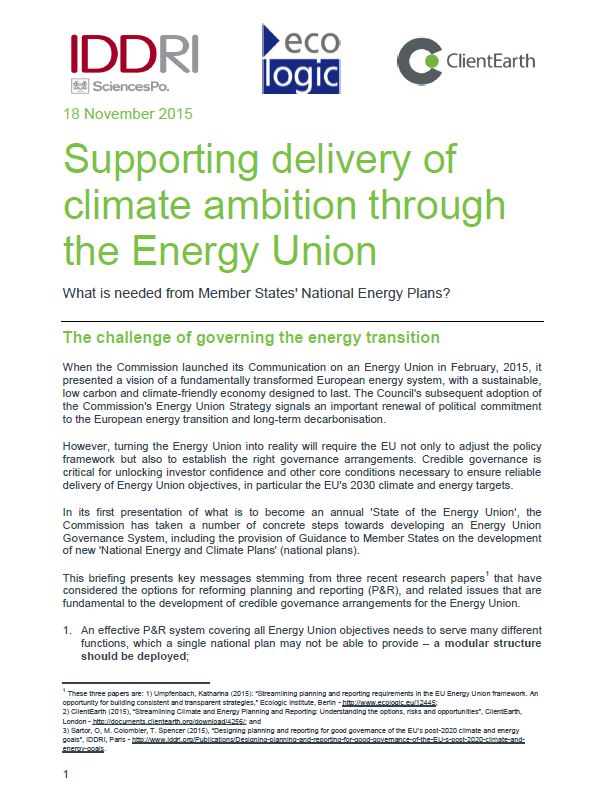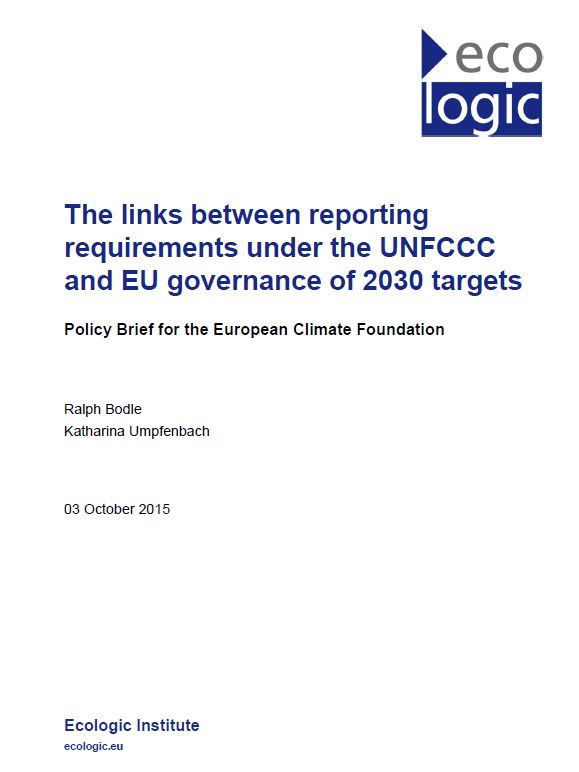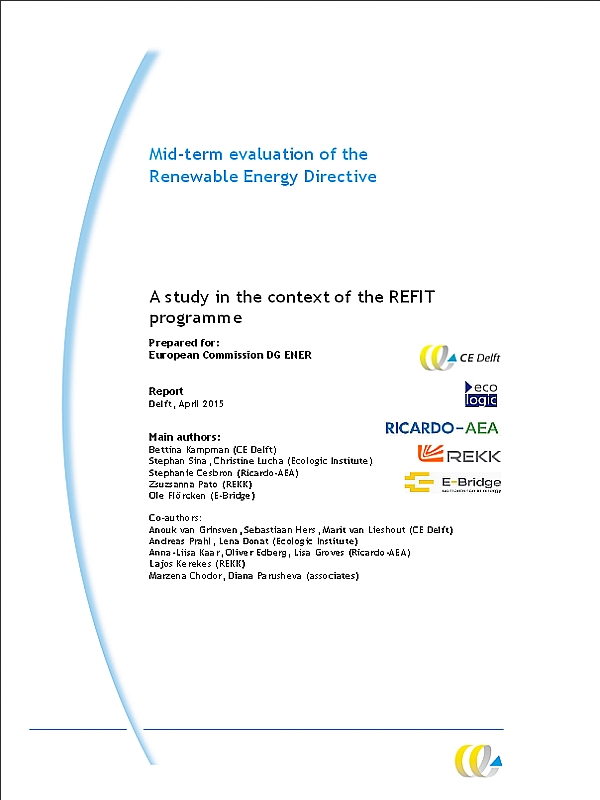A Robust Governance Framework for the EU 2030 Targets and the Energy Union: The Role of Planning and Reporting
- Event
- Date
-
- Location
- Berlin, Germany
The European Commission and EU Member States are currently discussing proposals for a new system of governance. The new set of rules and procedures is expected to help the EU to achieve its climate and energy targets for 2030 and to form an Energy Union. One of the reform’s aims is to streamline existing planning and reporting requirements on energy and climate policy. However, much remains to be clarified about how this new governance framework and the new planning and reporting process will work in practice. The studies are available for download.
To contribute to this debate, Ecologic Institut Berlin hosted a workshop on October 12, from 12.30-17.00h. At the event, we discussed with different stakeholders how planning and reporting requirements and the wider governance framework should be designed after 2020 to achieve the European energy and climate targets.
On these questions, a group of European research institutes has developed concrete proposals that were presented at the workshop during the first session "Different perspectives on streamlining planning & reporting". After an introduction by Dr. Camilla Bausch (Director, Ecologic Institute) Katharina Umpfenbach (Ecologic Institute) spoke about the "Opportunities and risks of four options for streamlining planning and reporting". Oliver Sartor (IDDRI) gave a presentation on "A genuinely forward-looking Energy Union: The role of long-term planning". In his presentation, Dr. Ralph Bodle (Ecologic Institute) addressed "Interlinkages with reporting requirements under the UNFCCC".
The second session "Embedding planning & reporting in the new governance framework" was opened by Robert Lorentz (Ministry for Energy and Economic Affairs) who spoke about the "EU debate on governance - The view of the German government". Subsequently, different stakeholders were given the opportunity to present their organization’s position in short statements. Representative statements were received by Antje Mensen (DNR), Christina Meinshausen (50Hertz), Corina Bolintineanu (BEE), Dr. Joachim Hein (BDI) and Martin Bornholdt (DENEFF).
The workshop provided a platform for engaging discussions. While the debate is still at an early stage and several details yet need clarification, some preferences were identified by the participants throughout the workshop based on the presented research results. A key concern of many participants was that while existing planning and reporting requirements should indeed be streamlined and made more efficient, streamlining the requirements may not impair the system or undermine the original goal of the duties. Specific suggestions for changes and amendments to existing planning and reporting requirements should consider this tension appropriately.
At the same time, it was highlighted that adopting a definite position towards concrete suggestions yet also depends on further clarification of relevant related questions. This is particularly true for the so-called "what-if"-question, which seeks to find an answer in case the binding EU target for renewables is not met. The fact that there are no binding national targets results in entirely new governance questions of relevance to the EU and its Member States.
Furthermore, participants highlighted that it would, in any event, be desirable if planning and reporting requirements were embedded in legislation. Finally, it was also underlined that planning and reporting requirements only constitute one aspect of the governance debate and that the development of political concepts needs to go beyond these issues and adopt an even broader perspective.
The studies are available for download.







